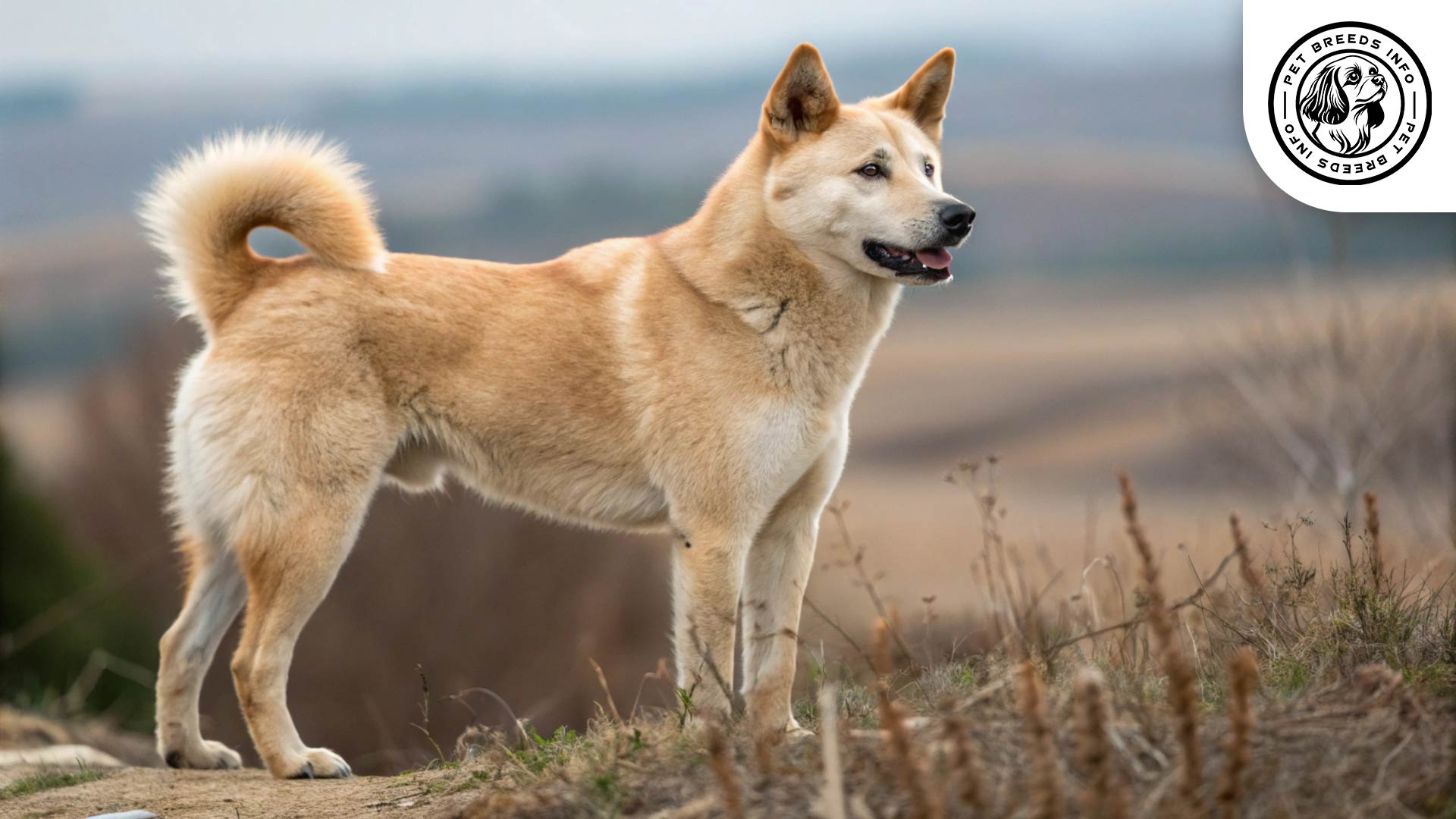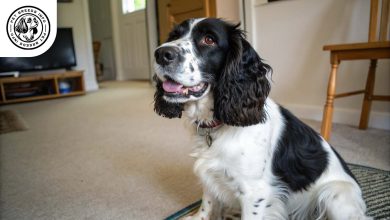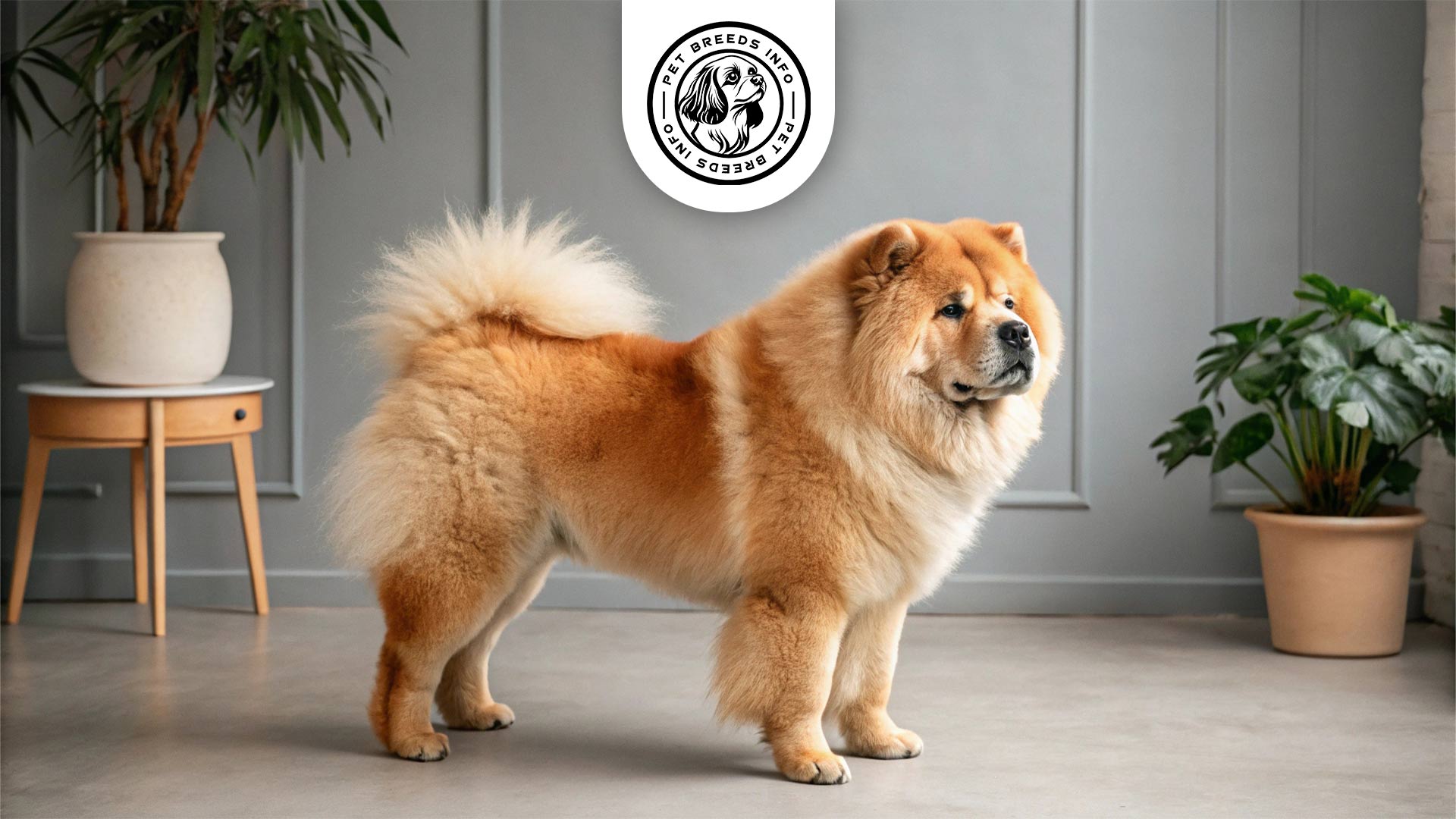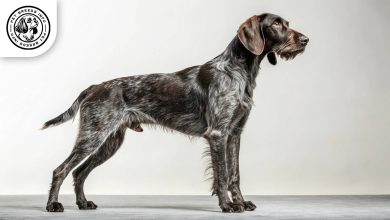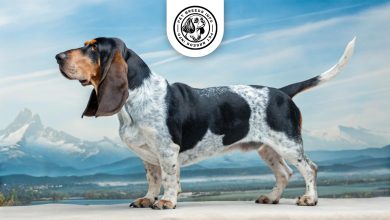Korean Jindo Dog Breed: Size, Health, Price & Personality
General Introduction of the Breed
The Korean Jindo Dog, also known as the Jindo (진돗개 in Korean), originates from Jindo Island in South Korea. This breed is highly regarded for its intelligence, loyalty, and strong hunting instincts. Historically, Jindos were used for hunting and guarding homes, and they remain a national treasure in South Korea.
Table of Contents
| Weight | Male: 18-23 kg, Female: 15-19 kg |
| Lifespan | 12-15 years |
| Diet | High-quality dry or raw food, lean meats, vegetables. Avoid chocolate, onions, grapes, excessive fatty or salty foods. |
| Care | Daily exercise, moderate grooming (heavy shedding twice a year), occasional baths, nail trimming, ear cleaning, dental care. Sensitive to extreme temperatures. |
| Health | Generally healthy, prone to hypothyroidism, allergies, and hip dysplasia. Routine veterinary care, vaccinations, parasite prevention. |
| Color | White, black, red fawn, brindle, gray. |
| Nature | Intelligent, loyal, independent, reserved with strangers, affectionate with family, strong hunting instincts. |
| Price | $500 – $2,000 (varies based on location, breeder, pedigree). |
Physical Characteristics
The Korean Jindo is a medium-sized breed. Males typically stand between 50-55 cm in height and weigh 18-23 kg, while females are slightly smaller at 45-50 cm in height and weigh 15-19 kg.
The breed has a double coat that helps protect it in varying weather conditions. Coat colors include white, black, red fawn, brindle, and gray.
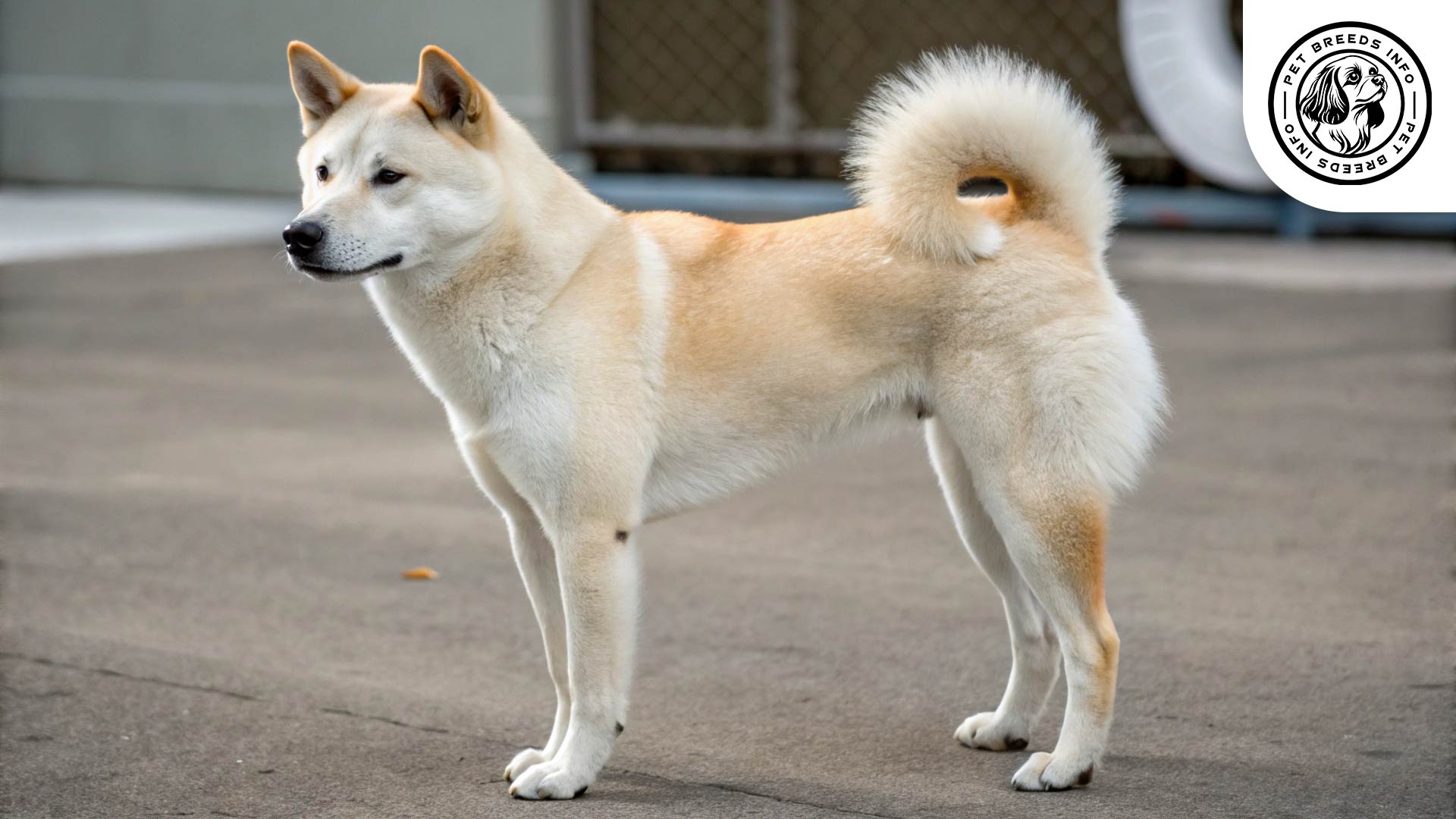
Jindos have almond-shaped eyes that are usually dark brown, giving them an alert and intelligent expression. Their ears are erect and triangular, positioned slightly forward. The tail is curled or arched over the back, adding to their distinctive silhouette.
Read More: Hamiltonstovare Dog
Personality and Temperament
Korean Jindos are highly intelligent and quick learners, making them excellent problem solvers. However, their independent nature can sometimes make training challenging.
They have high energy levels and require regular physical and mental stimulation. Jindos form deep attachments to their owners and are known for their loyalty, often bonding particularly strongly with one person.
Socially, Jindos can be reserved with strangers but are affectionate with their family members. They tend to be wary of other pets, particularly small animals, due to their strong hunting instincts. Proper socialization from an early age is essential to ensure good behavior.
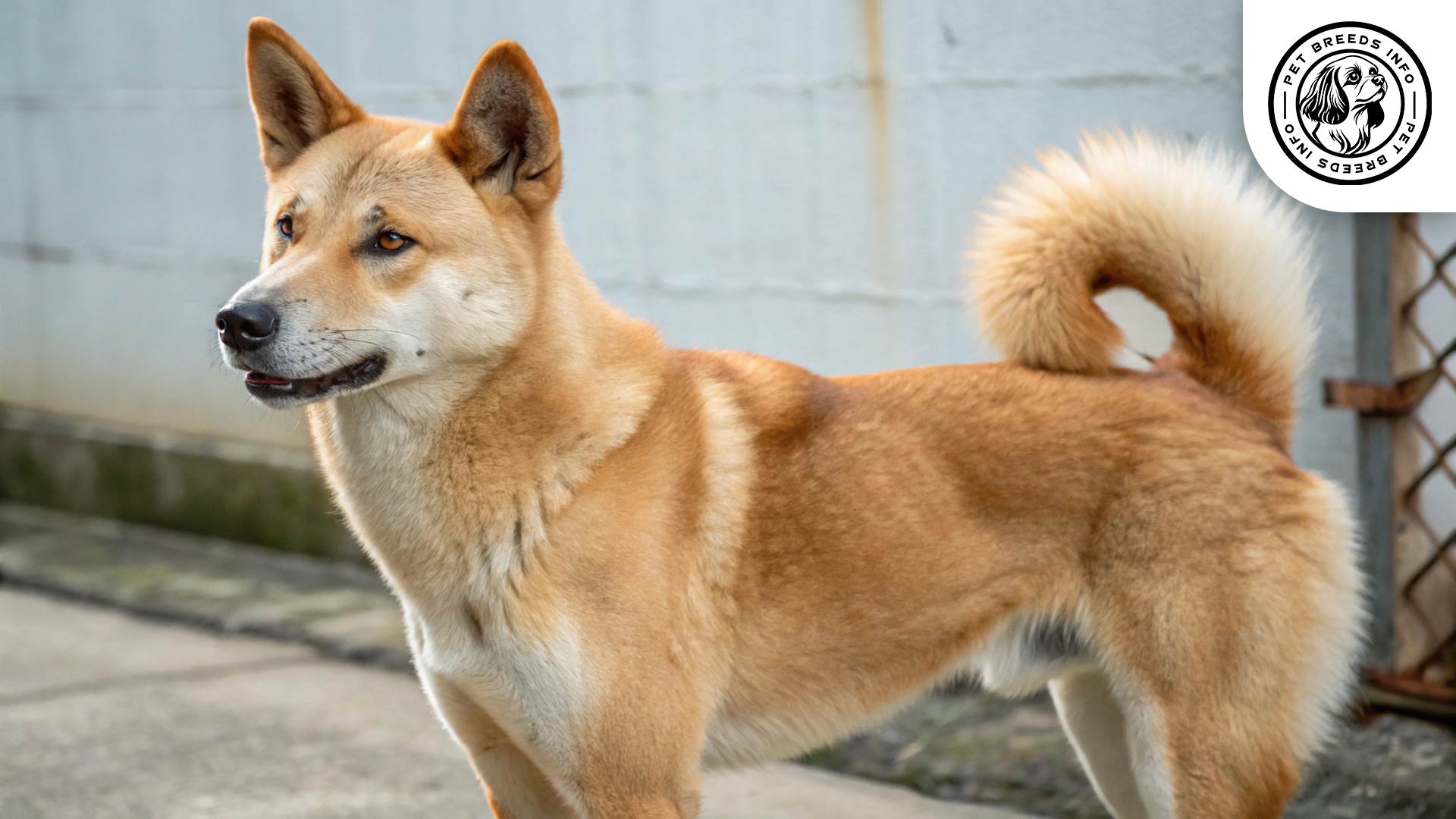
Care and Maintenance Requirements
Korean Jindos require daily exercise, including long walks, jogging, or playtime in a secure area. They are not ideal for apartment living unless provided with sufficient physical activity.
The breed has moderate grooming needs. They shed heavily twice a year and require more frequent brushing during these periods. Regular brushing helps control shedding and keeps the coat healthy. Jindos are naturally clean dogs and do not require frequent baths—once every few months is usually sufficient.
They are sensitive to extreme temperatures, particularly heat, so owners should ensure they have access to shade and water during hot weather. Regular hygiene practices such as nail trimming, ear cleaning, and dental care should be followed to maintain overall health.
Diet and Nutrition
A balanced diet is essential for a Jindo’s health. High-quality dry or raw food is recommended, supplemented with lean meats and vegetables.
Avoid feeding them chocolate, onions, grapes, and excessive fatty or salty foods. Portion control is crucial, and adult Jindos should be fed twice a day to maintain an optimal weight.
Read More: Hokkaido Dog
Health and Common Medical Issues
The Korean Jindo is generally a healthy breed with an average lifespan of 12-15 years. However, they are prone to certain health conditions, including hypothyroidism and allergies. Hip dysplasia can also be a concern, particularly in older dogs.
Routine veterinary care, vaccinations, and parasite prevention are necessary to ensure a Jindo’s long-term well-being.
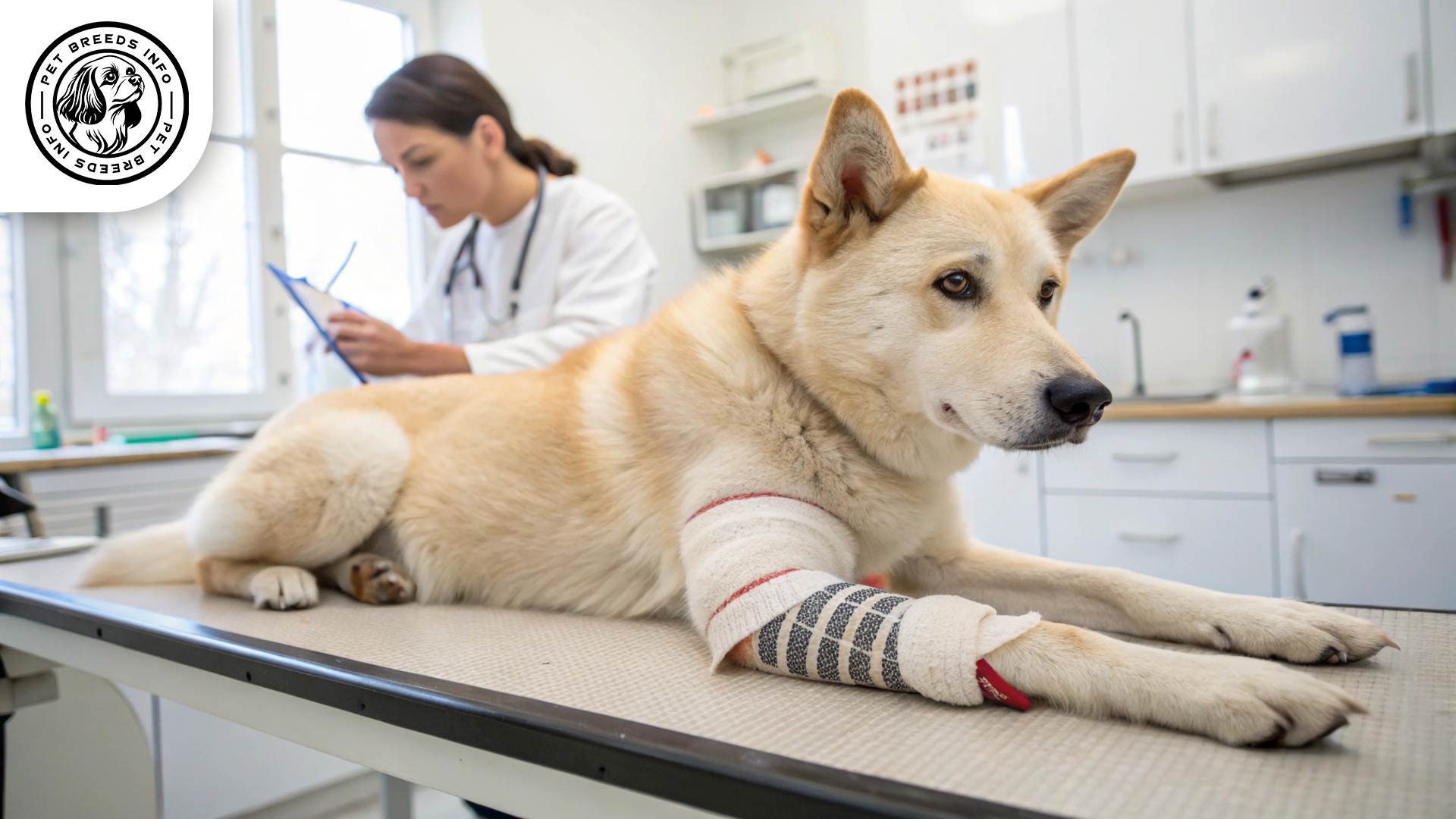
Training and Behavior Management
Training a Jindo requires patience and consistency. They respond best to positive reinforcement and reward-based methods. Harsh training techniques can damage their trust and should be avoided.
Early training and socialization are crucial in preventing behavioral issues. Exposing them to different environments, people, and situations at a young age helps them develop into well-adjusted dogs.
Interaction with Other Animals and Humans
Korean Jindos can be good with children in their household but may be reserved around unfamiliar kids. They are highly protective and may exhibit territorial behavior.
Their interaction with other pets varies. Some Jindos can coexist with dogs they were raised with, but their strong hunting instinct makes them unsuitable for homes with small pets such as rabbits or cats.
They are best suited for owners who understand their independent nature and can provide proper training and socialization.
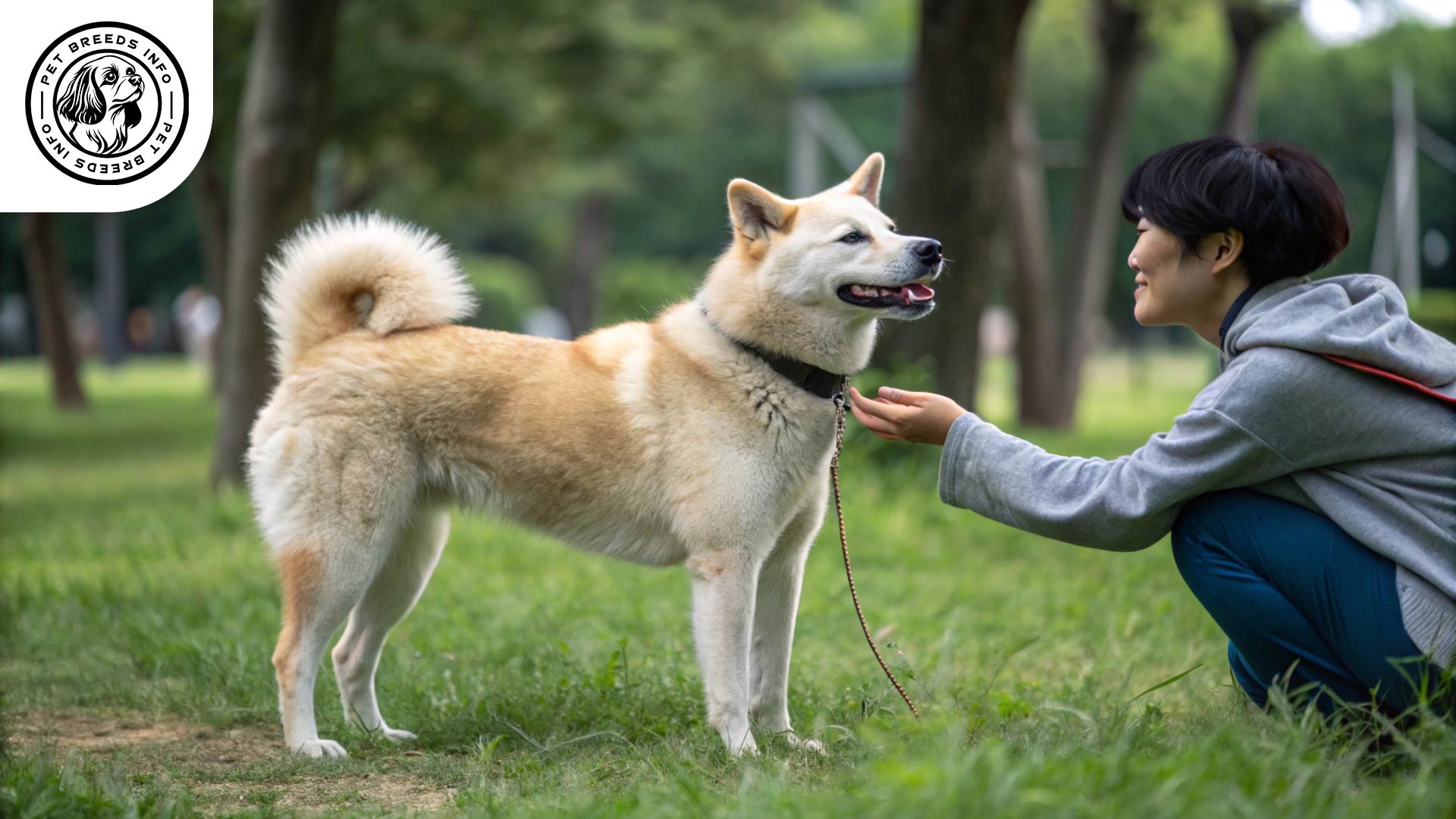
Price and Availability
The cost of a Korean Jindo varies depending on location, breeder reputation, and pedigree. Prices generally range from $500 to $2,000.
Potential owners should ensure they purchase from reputable breeders who perform health screenings. Adoption is also a great option, as some rescue organizations specialize in Jindos in need of homes.
Read More: Finnish Hound Dog
Conclusion and Final Thoughts
The Korean Jindo is a loyal, intelligent, and independent breed that thrives in active households with experienced owners. They require regular exercise, proper training, and socialization.
This breed is ideal for those looking for a devoted companion but may not be the best choice for first-time dog owners due to their strong-willed temperament. Proper commitment, patience, and a secure environment can make the Korean Jindo a wonderful addition to the right home.
FAQ
What is the temperament of a Korean Jindo?
Korean Jindos are known for their intelligence, loyalty, and independence. They form strong bonds with their owners but can be reserved with strangers. They also have strong hunting instincts.
What are the care requirements for a Korean Jindo?
They require daily exercise, moderate grooming with increased brushing during shedding seasons, and occasional baths. Regular nail trimming, ear cleaning, and dental care are also important. They are sensitive to extreme temperatures.
What is the typical diet for a Korean Jindo?
A balanced diet of high-quality dry or raw food, supplemented with lean meats and vegetables, is recommended. Avoid feeding them chocolate, onions, grapes, and excessive fatty or salty foods.
What are the common health issues for Korean Jindos?
They are generally healthy but can be prone to hypothyroidism, allergies, and hip dysplasia. Routine veterinary care, vaccinations, and parasite prevention are essential.
How much does a Korean Jindo typically cost?
The price can range from $500 to $2,000, depending on factors like location, breeder reputation, and pedigree. Adoption is also a viable option.
